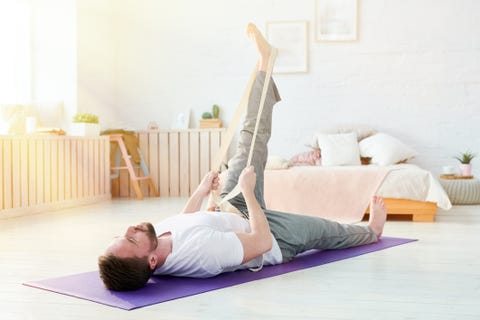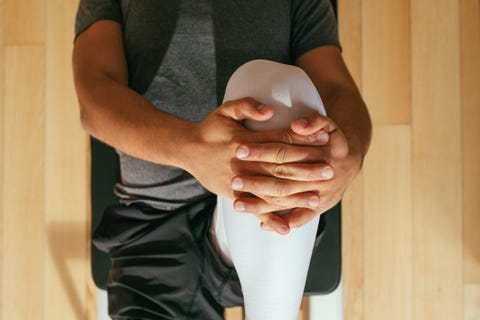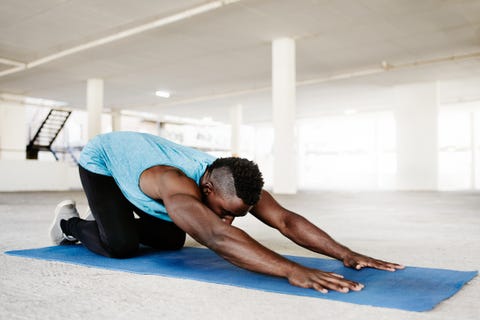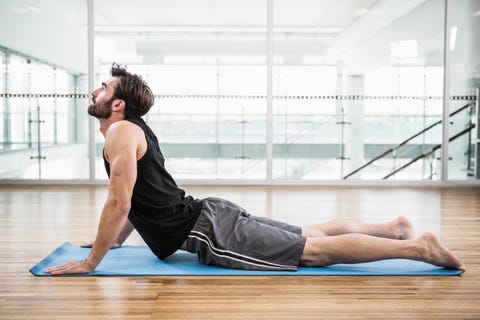If your back hurts, you’re not alone, especially if it’s your low back that’s achey. For one study, the CDC estimated that up to a quarter of adults in the U.S. had reported experiencing low back pain within 3 months, making it the most common type of pain reported by patients. Thankfully, most people don’t experience major issues when they have back pain, according to the statistics—but that doesn’t always make the ailment easier to handle in the moment.
Unfortunately, many people don’t always have the opportunity or knowledge to put themselves in a position to avoid the pain before it starts. So many jobs require day-to-day routines that consist of sitting for extended periods of time, often in compromising positions for their posture. Whether you sit at a desk leaning over a computer monitor or in the driver’s seat of a big rig, all that sedentary time can wreak havoc on how your back feels.
This problem became especially exacerbated at the height of the Covid-19 pandemic, when typically office-bound were displaced to their homes and forced to create places to work under less than ideal conditions. So much for seats with extra lumbar support and access to high quality coffee—the most important function of the pandemic WFH spot was a speedy internet connection and some separation from family members sharing the space.
While back pain isn’t always the most serious condition, it can certainly affect your quality of life. Sleeping might not be as easy, and moving around will be tougher. Even if you don’t need to go to the doctor to address your problems, you shouldn’t just live in discomfort.

Back pain can have many causes, from poor posture, muscle weakness, joint stiffness and even more serious problems in the spine. But chances are—if there was no traumatic injury or incident that led to your pain—a few adjustments to your body positioning and some key exercises (including stretches) can help.
Back pain can affect any portion of your spine from the cervical or neck region to upper or thoracic section and most commonly the lumbar or lower back area. Different stretches can help target different areas, but one thing is usually a safe bet: Moving is better than not moving.

Strengthening the right muscles is important. But for some immediate relief, stretching can help. By stretching the muscles that surround the spine, you can help promote mobility and reduce stiffness and pain. While stretching can help ease symptoms, knowing the true cause of your pain—whether it’s body positioning, weakness, or a more serious injury—is important.
But in the meantime, give these stretches a try to find some immediate relief.
8 Stretches to Help Your Back Feel Better
Hamstring Stretch

The hamstrings attach directly to your pelvis and can lead to stiffness and pain in the lower back if they are particularly tight. There are multiple ways to stretch the hamstrings. Try lying on your back with both legs straight. Loop a yoga strap or towel around one foot and slowly draw that leg up towards the ceiling until a stretch is felt behind the thigh. Make sure you aren’t rounding your back and your other leg stays flat on the floor. Hold at least 30 seconds.
Lower Trunk Rotation
Promote some mobility in your lumbar spine with this nice, gentle exercise. Begin lying on your back with both knees bent and feet flat on the floor. Keep your shoulders connected with the floor and your knees glued together as you slowly and gently drift both knees from left to right. Allow knees to fall all the way to one side and hold for a moment so you feel a little twist and stretch happening in your lower back. Repeat about 10 times to each side.
Knee to Chest Stretch

While lying on your back with both knees straight, bend one knee and hug that knee towards your chest (so one leg is compressed in towards you, the other is straight, extended away from you). Hold 30 seconds. Repeat on opposite side. Also, try hugging both knees to your chest at the same time so that you make a small ball. While doing this, allow your lower back to relax by taking several slow breaths.
Figure-Four Stretch

Low back pain and hip tightness often go hand-in-hand. Stretch out the piriformis muscle with this therapeutic stretch. Begin lying on your back. Bend both knees. Cross the ankle of one leg over the top of the opposite knee, allowing the hip of the crossed leg to open up. Clasp your hands behind the uncrossed leg and draw that knee in towards your chest as far as you can comfortably go. Hold this stretch (stretch should be felt in the crossed leg) for at least 30 seconds.
Open Books
The upper back (or thoracic spine) can become quite stiff and tight when working at a desk or computer for too long. Free up some restrictions by adding some very necessary rotation to your day. Begin lying on your side with knees bent, head supported and hands outstretched in front of you with palms facing each other. While keeping the hips pointed forward, lift the top arm straight up and over like you are a book opening until your top hand rests (or almost rests, depending how tight you are) on the other side of your body. Allow your head and eyes to follow the hand that is moving while the other hand stays outstretched in the starting position. Repeat 8 times on each side and hold the end range stretch for a few seconds before folding back up.
Child’s Pose

This popular yoga pose can feel wonderful on an achy back. Begin on hands and knees, then sit your hips back until you are sitting on your feet (or put a pillow between your hips and your feet if it’s too hard on the knees). Sink your hips back and reach your arms straight out in front of you as you keep your head down and hold this pose. For an added stretch, crawl hands to the right side so that you elongate the left side of your body and hold. Repeat to the left side. Maintain each position for at least 30 seconds.
Cat-Camel
Sometimes a little segmental movement can free up tension and restrictions in the spine. Begin on hands and knees. Slowly exhale as you round out your spine pushing each vertebra up towards the ceiling to make a C-shape from the crown of your head to your tailbone. Inhale as you reverse that shape so that your belly moves towards the floor and your head looks up. Alternate between these two positions on your own time, pairing breathing with movement. Stay in a pain-free range, but allow your spine to move into restrictions.
Cobra Stretch

This stretch is nor for everyone, but if you have a history of disc herniation or bulges this one may help you. Lie flat on your stomach and gently push your upper body up using your hands until you have extended as far as you’re comfortable. Let your belly relax and your lower back tense as you prop yourself up on your hands (or forearms if you can’t make it to a straight arm position). Hold, relax, and breathe for at least 30 seconds.
Source: Read Full Article
